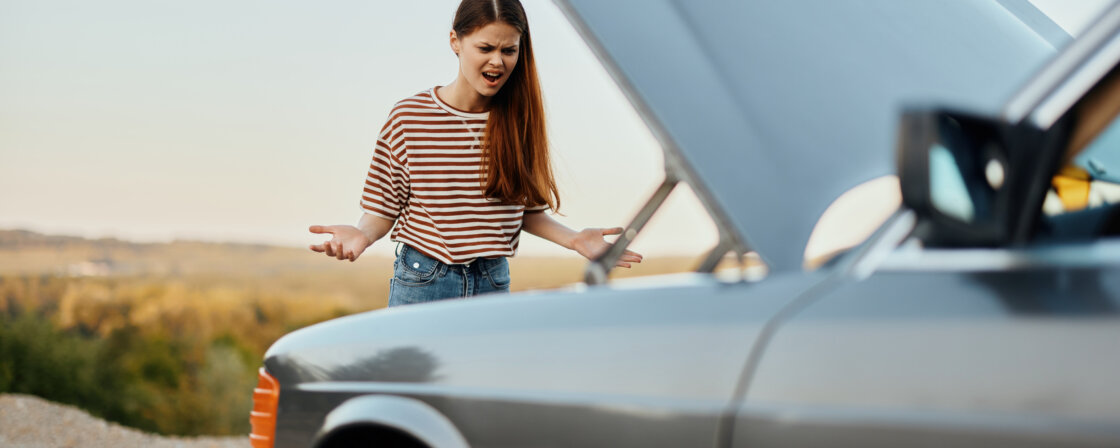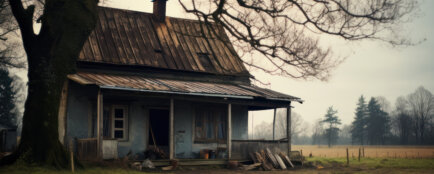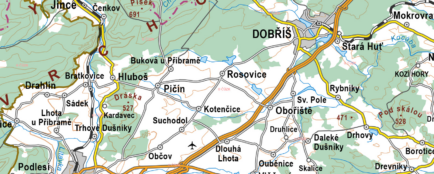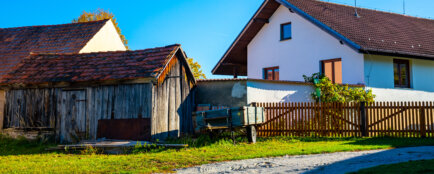What does it mean that ownership is binding?
Ownership is often seen as the right to do what we want with a thing. But the Czech legal system sees it a little differently. Article 11(3) of the Charter of Fundamental Rights and Freedoms says clearly: “Ownership is binding.” What does this mean in practice?
This principle is based on the idea that property is not only a privilege but also a responsibility. While the owner has the right to use, transfer or even destroy the property, he must not endanger others or the public interest. For example, he or she cannot let a house deteriorate to the point that chunks of plaster fall off it, cut down a forest without permission, or run a noisy workshop in the middle of a residential area.
The anchoring of this principle in the Charter is no accident. It is about balancing the rights of the individual and the interests of society. It is the state’s way of showing that it respects private property, but at the same time it insists that with power comes responsibility – just as in the case of freedom of expression, which is also not limitless.
Ethically, the point is that whoever owns something should behave considerately and responsibly.
Freedom vs. responsibility: where are the owner’s limits?
Having property means freedom – but not unlimited freedom. While the law protects property as a basic human right, it also sets clear limits. These limits appear wherever the exercise of property rights could endanger other people or the public interest.
Imagine you buy an old house. You are free to turn it into a studio or an office, for example, but you cannot demolish the load-bearing walls, change the purpose of the building or ignore health standards without permission. And if the house was in a conservation area? Then your plans can change quickly – any alteration is subject to approval.
Similarly with nature: you own a forest, but you can’t ‘clear it’ just because you need the wood. The law obliges you to manage and respect the landscape. What about the neighbours? You can’t shade their garden with a high wall, throw noisy parties every weekend or park in front of their driveway.
So the owner is not the ‘master of all’, but part of a wider system. Freedom ends where the right of the other begins – and the law consistently reminds us of this. Not just by paragraphs, but by fines.
Real estate, dog, car… What is the owner responsible for?
Ownership is not just about having keys to something or a piece of paper with a stamp on it. Legally, each type of property carries with it a specific responsibility. And that doesn’t just apply to extreme situations where someone gets hurt. It starts with routine maintenance and ends with compensation.
In the case of real estate, the owner has a duty to maintain the structure in a safe and habitable condition. If, for example, plaster falls off a façade and injures a passer-by, the owner is liable – regardless of whether they knew about the defect. There is also a duty to comply with building and hygiene regulations, to provide access to roads, or to maintain the spacing between buildings.
The owner of the car must keep an eye on the roadworthiness of the vehicle, pay the compulsory insurance and make sure that the car does not endanger anyone – for example, when parking on a slope or when driving a trailer that is overloaded. Negligence can be a criminal offence.
What about the dog? It may not be a “thing”, but we are legally responsible for it anyway. If it escapes and causes damage – whether it bites a neighbour or runs in front of a car – the responsibility lies with the owner.
So whether it’s the roof, the engine or the animal, the common denominator is clear: owning means caring and bearing the consequences.
When property is lent, rented or co-owned: who is liable for what?
Even if you lend or rent your property to someone, you are not completely absolved of liability. The law distinguishes between who owns the property and who is using it – and allocates duties and liability accordingly.
In the case of a lease (e.g. of a flat), the right of use passes to the tenant, but the owner still has a duty to keep the property in a fit state for use. So if the heating in the flat stops working, it is the landlord’s responsibility – unless the tenant is at fault. The tenant is liable for any damage caused by him or his visitors.
The situation is similar for a loan (e.g. tools, car, bicycle). If the item had a hidden defect that the owner knew about and did not point out, he is liable. But if the user damages the item through normal use or causes damage to someone else, he is liable.
What about joint ownership? It’s even more complicated than that – the co-owners decide together and all share in the costs and liabilities. If they disagree, the majority or the court can decide.
Simply put: property is not just a right to “have”, but also a permanent obligation to “guarantee”. And this even if someone else is using it at the time.
When do you go straight to a lawyer with the property? And why it (often) pays off.
Some property situations you can handle on your own, others call directly for a lawyer. And the sooner you bring him or her in, the less it may end up costing you – money, time and nerves.
Typical examples are contracts to buy, sell or donate property. A mistake in one sentence can mean months of litigation. A lawyer will check not only the text of the contract, but also the entries in the Land Registry or any easements.
Neighbour disputes are another common reason why people seek legal help. When things don’t go well, a lawyer can suggest a solution according to the law and prevent the conflict from escalating.
Help is also useful when there is an inheritance or transfer of property in the family. Many misunderstandings arise from unclear wills or ill-considered gifts. A lawyer can help you choose the right form and set the terms.
And then there are serious situations such as expropriation, building regulations or interference by the authorities. There’s often a lot at stake here – even the roof over your head.
So the advice of a lawyer is not just a “problem luxury”, but often the smartest investment in peaceful ownership.
Important case law in the field of property law
The well-known media case of Klinika concerned a disused state-owned building that was occupied and operated for a period of time by a group of activists as an autonomous social centre without the formal consent of the owner. The Constitutional Court, in its ruling No. IV. ÚS 3419/18, the Constitutional Court concluded that “the rule that ownership is binding, that it may not be abused to the detriment of the rights of others or contrary to the interests protected by law, and that its exercise may not harm human health, nature or the environment beyond the extent provided for by law, expresses the general preventive duty of the owner of a thing to prevent harm to health, property or the environment, as well as the duty to prevent the excessive exercise of the right of ownership to the detriment of (in particular the property) rights of third parties. However, this cannot justify the unjustified occupation of real estate owned by other entities.”




